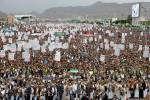‘What kind of people do they think we are?’
Every year, on the morning of Dec. 7, the phone rings.
"Why did you ignore Pearl Harbor?"
"We didn't forget Pearl Harbor, sir. There's a photo and caption inside the paper, showing the veterans saluting the flag at the USS Arizona Memorial."
"Buried it inside, eh?"
But there are fewer calls each year.
Indeed we should not forget Pearl Harbor, nor the wonderful sacrifices of the men and women who refused to say "Quit" in the tough years that followed.
After that fateful day in 1941, it was nearly 60 years before new enemies found a way to launch an attack of anywhere near equivalent impact on U.S. territory. But the perpetrators of the airline hijackings of Sept. 11, 2001, did not choose primarily military targets, for their goal was not to cripple U.S. military capacity in order to gain a free hand to sweep innocent nations into a fledgling overseas military empire.
Those who attacked us on Sept. 11 saw their enemy as American culture and strength. They were willing to murder thousands of non-combatants in an attempt to damage American morale, convincing this country that we should withdraw not only our military support but also our trade and commerce from overseas, in the hopes that -- without that American trade and support -- modestly humane and secular regimes on the Arabian peninsula and elsewhere in the near East would crumble before some kind of spontaneous jihad, restoring the Muslim world to the conquering glories of a thousand years ago, free of Playboy, Baywatch, McDonald's, and women in bluejeans.
It sounds nuts -- actually, it is nuts -- though al-Qaida has had some surprising success based on this simplistic estimate of Western softness when their chosen targets were European.
All it took was one day of train bombings to convince the Spaniards to change their government, withdraw their minimal forces from the Mideast, and beg the jihadists for a truce. Washington Times columnist Diane West has spent years chronicling the pathetic eagerness with which other Europeans, emulating Neville Chamberlain, now prostrate themselves before the inflated phantom of sword-waving Muslim rage.
(New French President Nicolas Sarkozy, for the record, has offered a refreshing contrast to such supine simpering.)
In America, though, al-Qaida ran into something they hadn't counted on. Americans in general -- and their commander-in-chief in particular -- echoed a European of a very different caliber, who asked after British forces in the Pacific were attacked by the Japanese 67 years ago, "Is it possible they do not realize that we shall never cease to persevere against them until they have been taught a lesson which they and the world will never forget? ... What kind of a people do they think we are?"
George W. Bush -- and his America -- did not cower and ask what the enemy demanded of us. After honoring our innocent dead, we went on the attack.
Has everything that's been done in the name of the "War on Terror" been wise, necessary, and effective? Of course not -- any more than it proved necessary to fight the Japanese in the Aleutians in 1942.
The evidence of al-Qaida connections in Afghanistan was far stronger than the minimal evidence of a terrorist connection in Iraq -- although, planned or not, al-Qaida eventually showed up for the party, and has been convincingly trounced on the banks of the Tigris and Euphrates.
Congress has fallen into its traditional habit of larding up subsequent Homeland Security bills with their usual portions of pork fat. And plenty of real and planned infringements on Americans' civil liberties have proven excessive and of little demonstrable worth.
But let us not overlook the proverbial elephant in the middle of the room: There has not been a successful follow-up terrorist attack on these shores for seven years, and there's no reason to believe it's because the bad guys weren't trying.
Osama bin Laden and what remains of his scowling, murderous crew are presumably hiding out in some cave on the Afghan-Pakistani border, dodging the incoming, unable to stage any more substantial operations in this hemisphere. Which, second only to dead, is a pretty good place for them.
And the reason for that, make no mistake, is that the bad guys encountered a very different kind of enemy in America than they ran into in Europe.
As did Hirohito and his emperor, convinced that an America with her battleship fleet on the bottom of Pearl Harbor would promptly sue for the best peace terms available.
We signed a peace, all right. On the deck of the battleship Missouri. In Tokyo Harbor.
That struggle took four years. This one is taking longer. Will Americans finally throw up their hands now, giving up their vigilance and their resolve?
Wanna bet?























